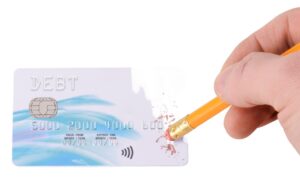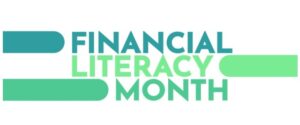Do you know how close you might be to a scam? You might be closer than you probably think. In 2024, Canadians reported over 108,000 cases of fraud, with more than $638 million lost. The most common types of scams were identity theft, fake services and investment scams. According to the Canadian Anti-Fraud Centre, investment scams caused the biggest losses—over $310 million!
This data sounds very scary, right? Don’t worry. With a little knowledge, you can learn to recognize, avoid and protect yourself from scams.
First, let’s talk about some common types of scams.
Phishing Scams
Your information is valuable–so valuable that criminals will go to great lengths to steal it. How do these criminals get your sensitive information?
The most popular strategy is emails, texts, or social media messages that include malicious links. These sneaky digital messages look like they come from real companies or important places, but scammers make them specifically to trick you. They might say it is urgent or do not say much at all—just to trick you into clicking a link or downloading something. All it takes is one click, and your information can be stolen.
To avoid phishing scams, don’t click on links or download attachments unless you know the message is real. Check who sent the message carefully.
- Is the logo image crisp and clear? Some fraudsters will screenshot logos to make their messages look legitimate.
- Does the email address or website look suspicious? Even a subtle swap of an “a” for an “α” can make a difference.
- Is the messaging pushing you to act fast? Sammers want you to act before you have a chance to think clearly; this kind of messaging inspires that response.
Personal Information and Identity Theft
Your identity includes personal information like your name, birthday, and address. Identity theft happens when someone steals your information and pretends to be you. They might try to buy things, open accounts or even take out loans in your name.
To get your personal identifiable information, scammers might send you fake emails or text messages. It might include links for fake identity verification. How do you avoid identity theft?
- Don’t click on suspicious links that will take you to unrecognizable websites.
- Use good and different passwords for all your accounts.
Just these two simple things alone go a long way to keep your personal information safe.
Service Scams
A service scam is when someone offers to help you with something, but they’re lying. They ask for money, but either do a bad job or don’t do anything at all. Sometimes, they just take your money and disappear. Be careful if someone calls, messages you or shows up at your door offering a service out of nowhere. Make sure to research the service and talk to someone you trust before giving out any money.
Investments Scams
An investment scam is when someone tries to trick you into giving them money and promises you will get a lot more money back. You could end up losing your money instead.
Two common investment scams:
Ponzi
A Ponzi scam is a trick where a scammer promises people, they will make a lot of money if they invest. Instead of making real profits, the scammer just uses money from new investors to pay the old investors. It looks like everyone is making money, but it’s all fake. Sooner or later, the scam runs out of new money, and things fall apart—then most people lose everything they gave.
The “Pump and Dump”
Imagine someone tells everyone that a new handbag is a limited edition, even if it is not. People rush to buy it, so the price goes way up. What that salesperson isn’t saying is that they have a whole pile of the same handbag in their storage unit. When the price goes up, the seller quickly sells all of them and makes money. Then, the price drops fast because it’s not special. The people who bought it last lost their money. This is how a “pump and dump” scam works with stocks—the scammer tricks others to raise the price, sells their shares, and others end up losing.
Credit Card Scams
Credit card scams are a type of financial crime where scammers steal your credit card numbers, bank account information, or other confidential information. They might send fake emails or texts asking you to “verify” your financial information. If you comply, they can commit bank fraud and use your credit card or debit card without your permission.
These unauthorized transactions can hurt your credit score and show up on your credit reports. That’s why it is important to check credit reports often through trusted credit bureaus. Never share your card information unless you are sure it is safe. Your digital footprint matters—keep it protected.
If you think you have been tricked by a credit card scam, don’t panic—but act fast! Contact your financial institution or bank to report the fraud. They can help block your card and stop charges. Then you’ll want to contact the credit bureaus to get the fraudulent transactions cleared off your credit report. You should also report the scam to the Canadian Anti-Fraud Centre, which helps with fraud prevention and fraud detection.
Scam prevention
Now that you know how different types of scams work, let’s look at some smart ways to protect yourself:
- Be a good researcher. If someone offers you a deal that sounds too good to be true, take time to investigate. Look up the company or message online—real businesses do not rush or pressure you.
- Be super careful with your personal data, like your phone number, address or account information. Use strong passwords and protect them with a password manager. Even better, turn on multi-factor authentication so you need more than just one password to log in. It adds extra security to your accounts.
- Check your credit report regularly for errors. You can even set up an alert or freeze on your credit for even more protection.
- If you think something is fraudulent, don’t ignore it. Report it to Service Canada and the Canadian Anti-Fraud Centre. Reporting helps stop scammers and protects others from losing money. Share this information to educate your family and friends! The more people know how to spot scams, the safer everyone will be.
Scams can happen to anyone—now you know how to fight back. By staying alert, asking questions and protecting your personal info, you’re already one step ahead.






